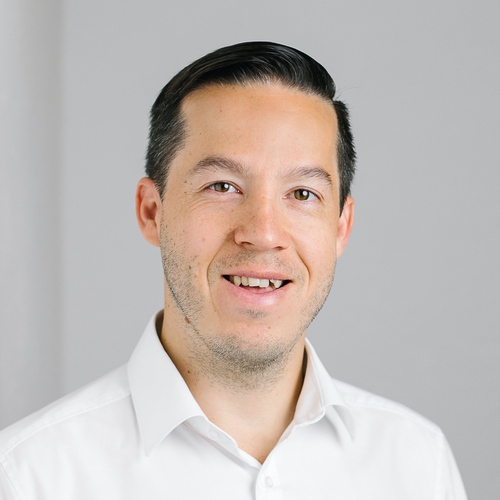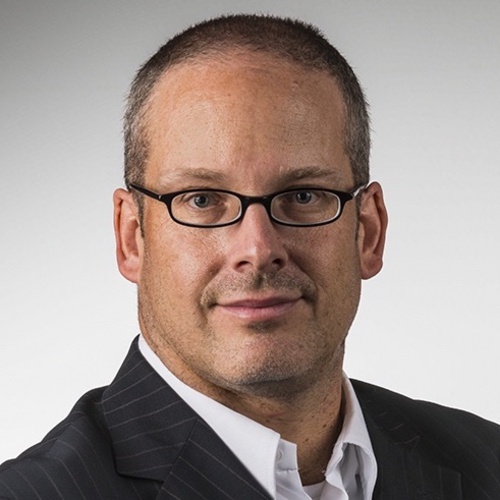Track 11
Design Science Research: Development & Modeling of Information Systems
The design and implementation of suitable information systems is a prerequisite for the realization of innovative business models and represents an essential basis for digital transformation. Enterprise modeling forms an important design basis for this. Enterprise models are the central basis of information system development methods and aim at the joint design of computer-based information systems and organizational action systems. The track provides a forum for current research on conceptual modeling, enterprise modeling, and information systems development. The track addresses current challenges in the corresponding research fields, including in particular the use of conceptual models in the context of „innovative organizational forms, new business models, and forms of cooperation and interaction that exhibit considerable complexity and place corresponding demands on information system design.“
The orientation of the track reflects the diversity of research objectives, research subjects, and research methods in the corresponding research fields.
(machine generated translation)
References
- Frank U; Strecker S; Fettke P; vom Brocke J; Becker J; Sinz E: Das Forschungsfeld »Modellierung betrieblicher Informationssysteme«: Gegenwärtige Herausforderungen und Eckpunkte einer zukünftigen Forschungsagenda (Research Note), WIRTSCHAFTSINFORMATIK 56 (1) 2014.
- Kurt Sandkuhl, Hans-Georg Fill, Stijn Hoppenbrouwers, John Krogstie, Florian Matthes, Andreas S. Opdahl, Gerhard Schwabe, Ömer Uludag, Robert Winter: From Expert Discipline to Common Practice: A Vision and Research Agenda for Extending the Reach of Enterprise Modeling. Business & Information Systems Engineering 60(1): 69-80 (2018)
Possible topics
- Conceptual models for the design of digital transformation
- Big Data and conceptual data modeling
- Modeling and emerging technologies (e.g., artificial intelligence, blockchain, Internet of Things, augmented reality)
- Innovative modeling tools
- Business process modeling and enterprise modeling
- Modeling languages, domain-specific modeling languages, modeling methods
- Evaluation and quality of conceptual models and modeling languages
- Model analysis, executable models, model transformation, model-based software development
- Automatic modeling using data mining and process mining
- Robotic Process Automation (RPA)
- Reference models and reference model construction
- Domain-specific applications of conceptual modeling (e.g., healthcare)
- Model-based enterprise compliance
- Philosophical and scientific foundations of modeling research

Dr. Dominik Bork
Technische Universität Wien
Dominik Bork is Assistant Professor for Business Systems Engineering at the Faculty of Informatics, Institute of Information Systems Engineering, Business Informatics Group at TU Wien. His research interests comprise conceptual modeling and model engineering as well as their application for modeling tool development and web modeling. A primary focus of ongoing research is on empirical aspects of conceptual modeling and the mutual benefits of conceptual modeling and Artificial Intelligence.

Prof. Dr. Peter Fettke
Saarland University, German Research Center for Artificial Intelligence
Peter Fettke is Professor of Information Systems at Saarland University and Principal Researcher, Research Fellow and Research Group Leader at the German Research Center for Artificial Intelligence (DFKI) in Saarbrücken. In his research, he and his research group of about 30 people are particularly concerned with the interface of the topic complexes of business informatics and artificial intelligence (AI), especially the modeling of computer-integrated systems and innovative application concepts. His papers are among the most cited articles in leading international journals on business informatics and he is among the top 10 most cited scientists at DFKI. He is Co-Editor-in-Chief of the journal Enterprise Modelling and Information Systems Architectures (EMISAJ).
(machine generated translation)

Prof. Dr. Hans-Georg Fill
Universität Freiburg
Hans-Georg Fill is Full Professor of Digitization and Information Systems at the University of Fribourg, Switzerland. Prior to his appointment in Switzerland, he held positions at the Otto-Friedrich University of Bamberg and the University of Vienna. He also completed numerous long-term stays abroad at Stanford University, USA, the Ecole Nationale Supérieure des Mines à St. Etienne, France, and the Karlsruhe Institute of Technology (KIT), among others. His main research interests include metamodeling and enterprise information systems development, as well as the integration of emerging technologies such as blockchains, semantic technologies, augmented and virtual reality. He is a co-founder of the Special Interest Group Business Informatics (SIG BI) of the Swiss Informatics Society and a member of the Expert Committee 07 – Business Informatics of ASIIN e.V. He is also a member of the editorial boards of BISE Journal, IJISMD, and ACSIS, as well as a co-editor of Enterprise Modelling and Information Systems Architectures – International Journal of Conceptual Modelling (EMISAJ).
(machine generated translation)
Associate Editors
- Stephan Aier (Universität St. Gallen)
- Jörg Becker (Westfälische Wilhelms-Universität Münster)
- Jan vom Brocke (Universität Liechtenstein)
- Patrick Delfmann (Westfälische Wilhelms-Universität Münster)
- Werner Esswein (Technische Universität Dresden)
- Michael Fellmann (Universität Rostock)
- Ulrich Frank (Universität Duisburg-Essen)
- Florian Johannsen (Hochschule Schmalkalden)
- Reinhard Jung (Universität St. Gallen)
- Dimitris Karagiannis (Universität Wien)
- Ralf Knackstedt (Universität Hildesheim)
- Agnes Koschmider (Christian-Albrechts-Universität zu Kiel)
- Susanne Leist (Universität Regensburg)
- Peter Loos (Universität des Saarlandes)
- Jan Mendling
- Markus Nüttgens (Universität Hamburg)
- Andreas Oberweis (Karlsruher Institut für Technologie)
- Sven Overhage (Otto-Friedrich-Universität Bamberg)
- Michael Rebstock (Hochschule Darmstadt)
- Jana Rehse (Universität Mannheim)
- Stefanie Rinderle-Ma (Technische Universität München)
- Michael Rosemann (Queensland University of Technology)
- Kristina Rosenthal (FernUniversität in Hagen)
- Kurt Sandkuhl (Universität Rostock)
- Sebastian Schlauderer (Otto-Friedrich-Universität Bamberg)
- Hannes Schlieter (Technische Universität Dresden)
- Reinhard Schütte (Universität Duisburg-Essen)
- Elmar Sinz (Otto-Friedrich-Universität Bamberg)
- Susanne Strahringer (Technische Universität Dresden)
- Stefan Strecker (FernUniversität in Hagen)
- Oliver Thomas (Universität Osnabrück)
- Klaus Turowski
- Mathias Weske (Hasso Plattner Institut)
- Manuel Wimmer (Johannes Keppler Universität Linz)
- Robert Winter (Universität St. Gallen)
